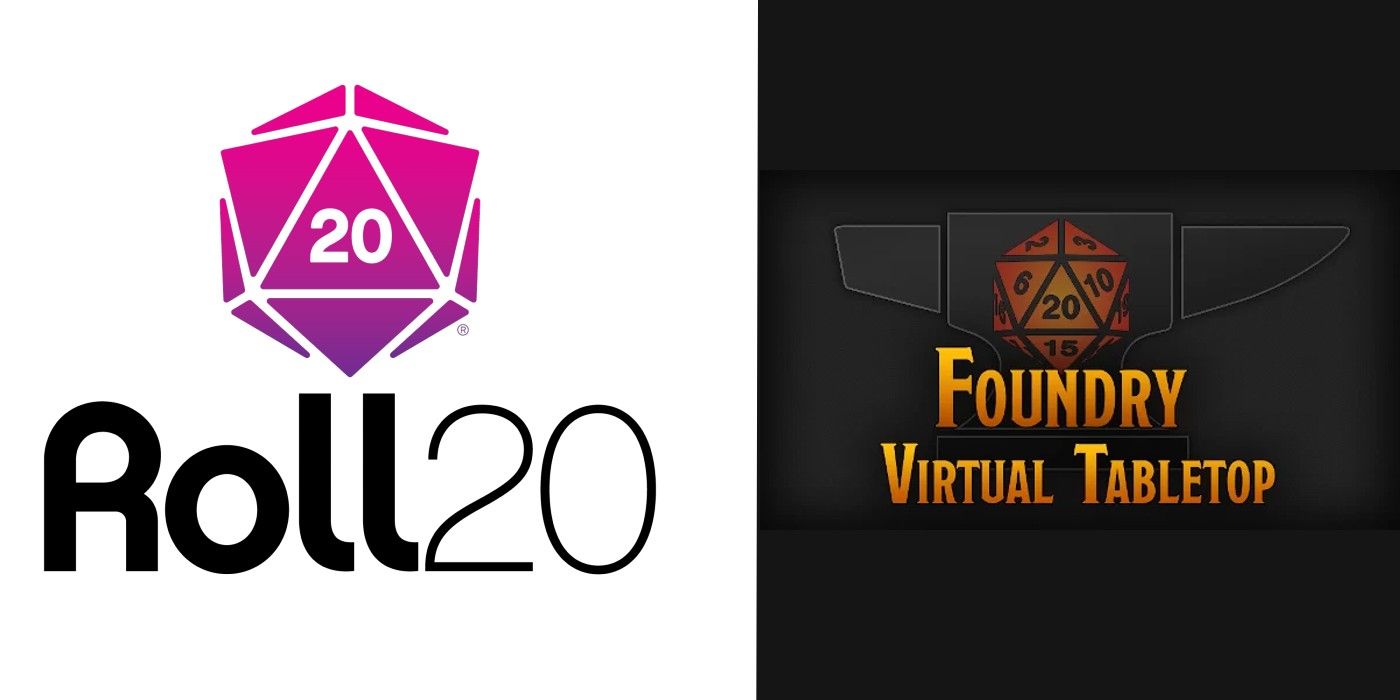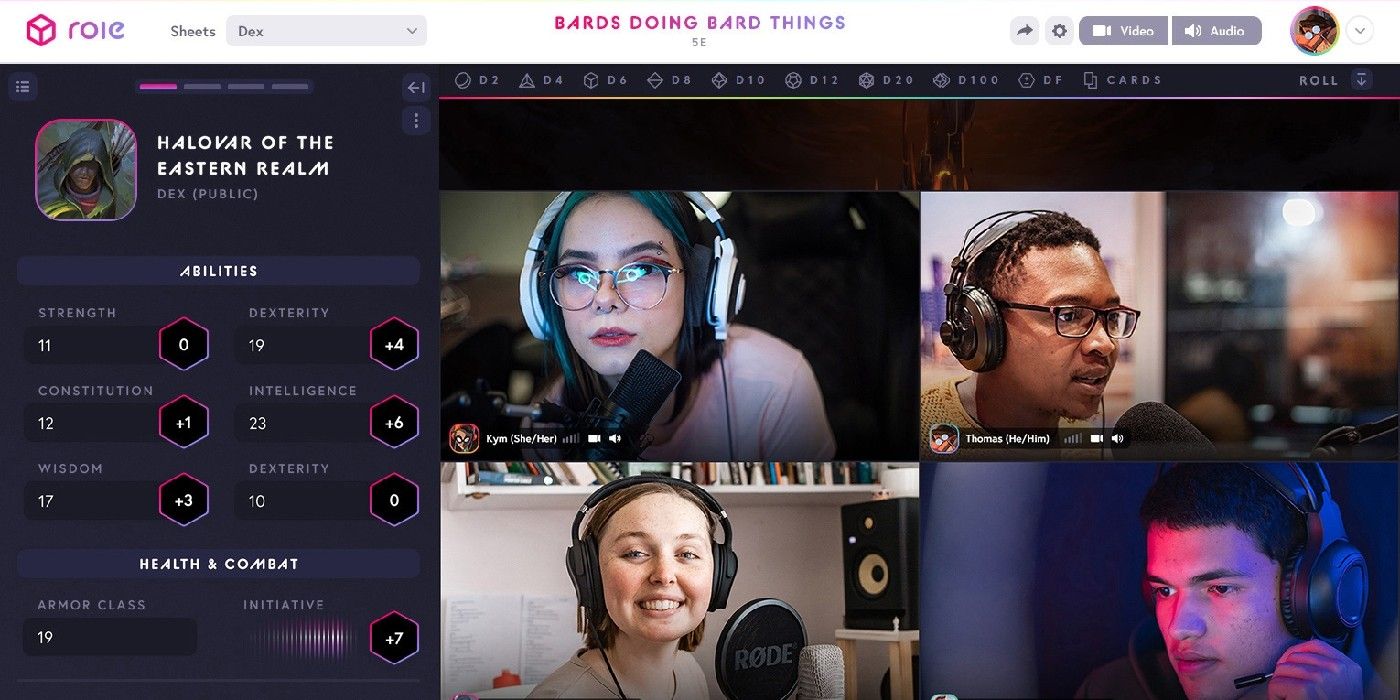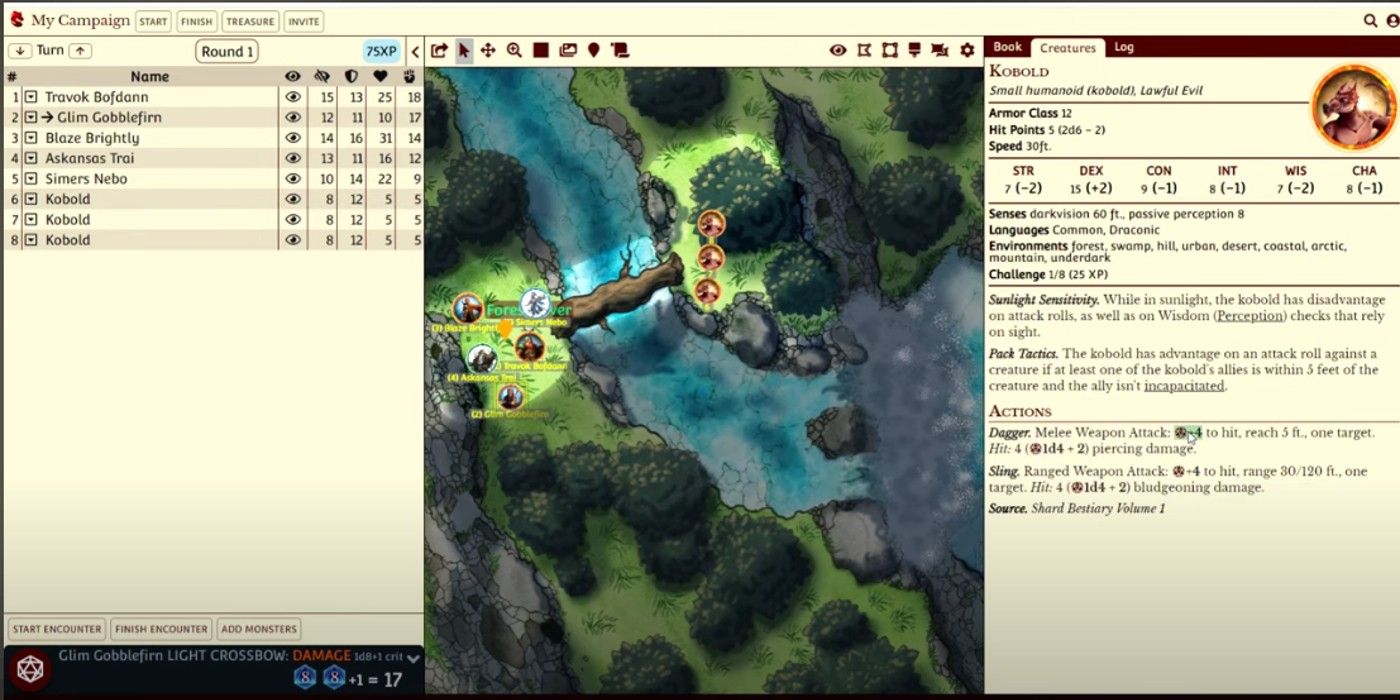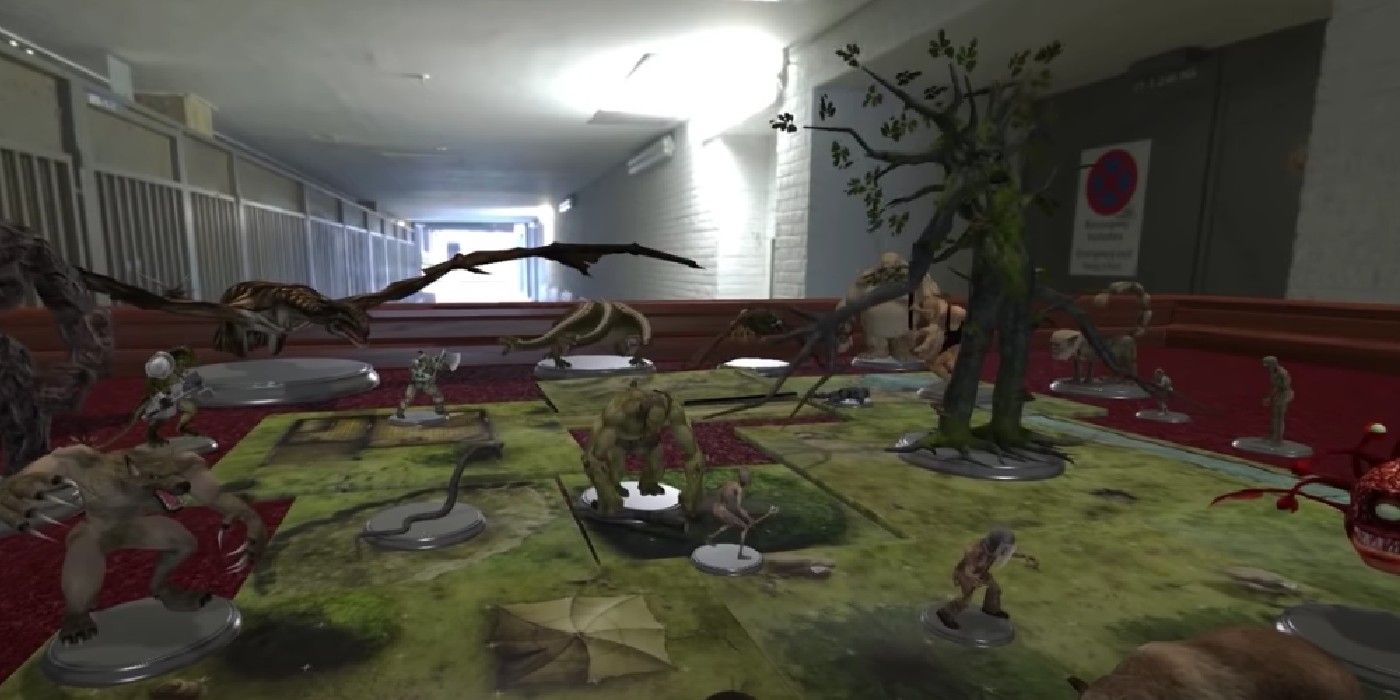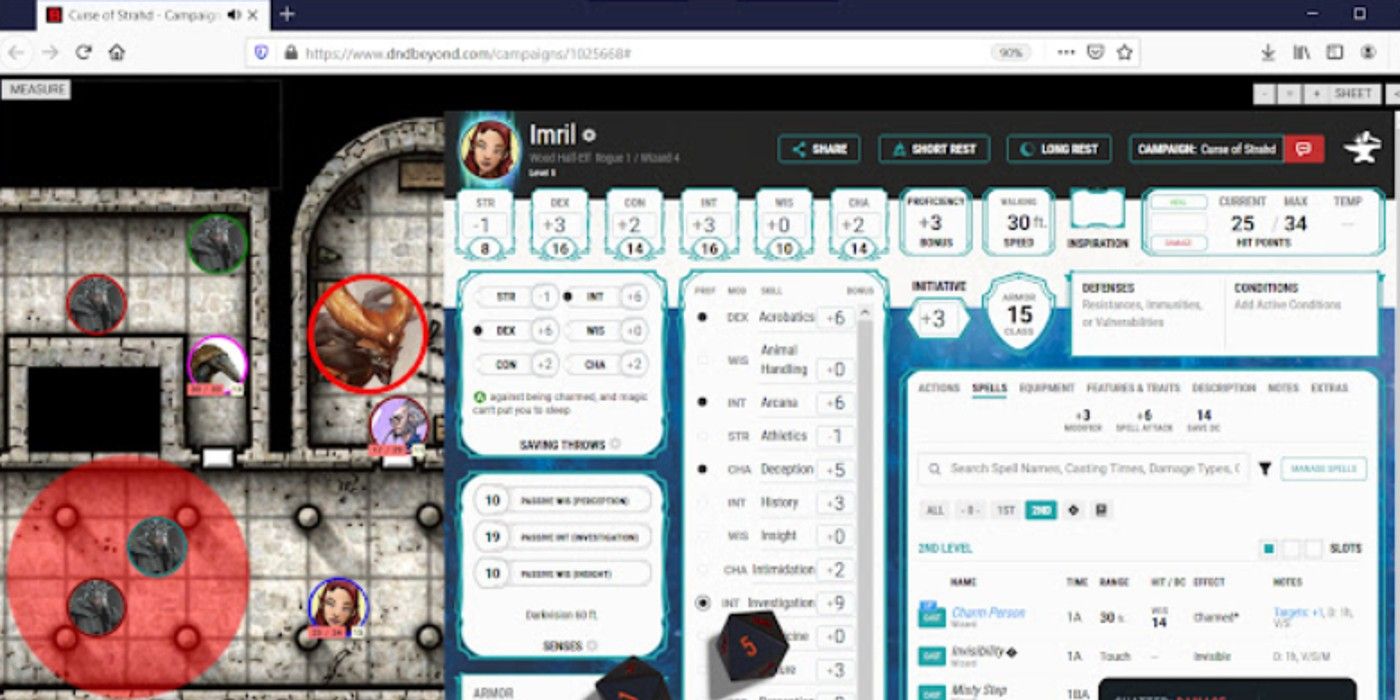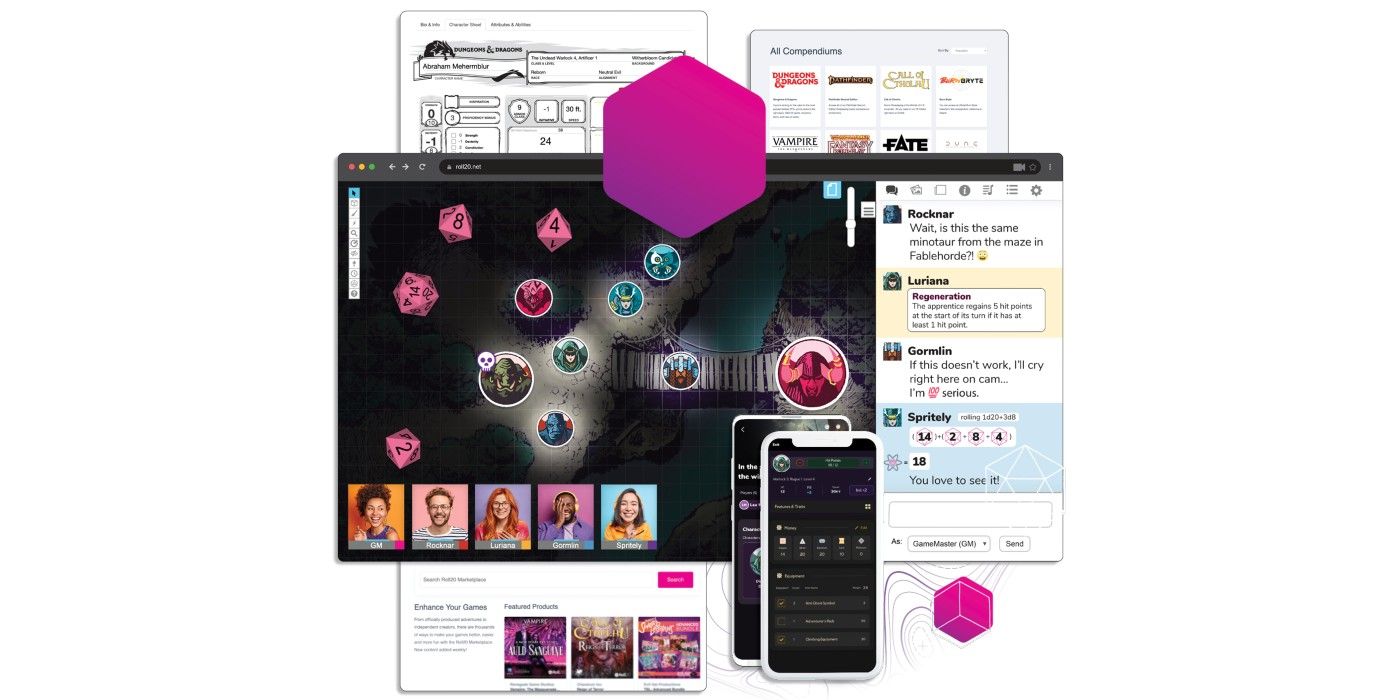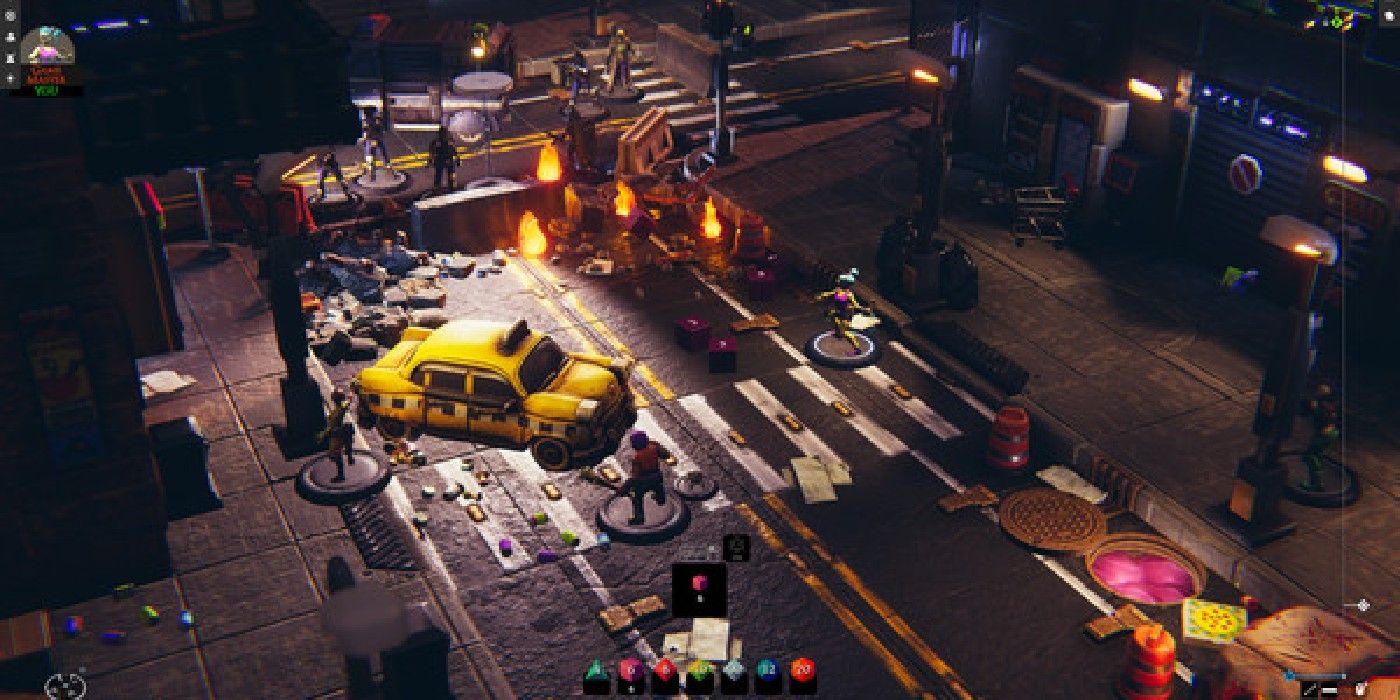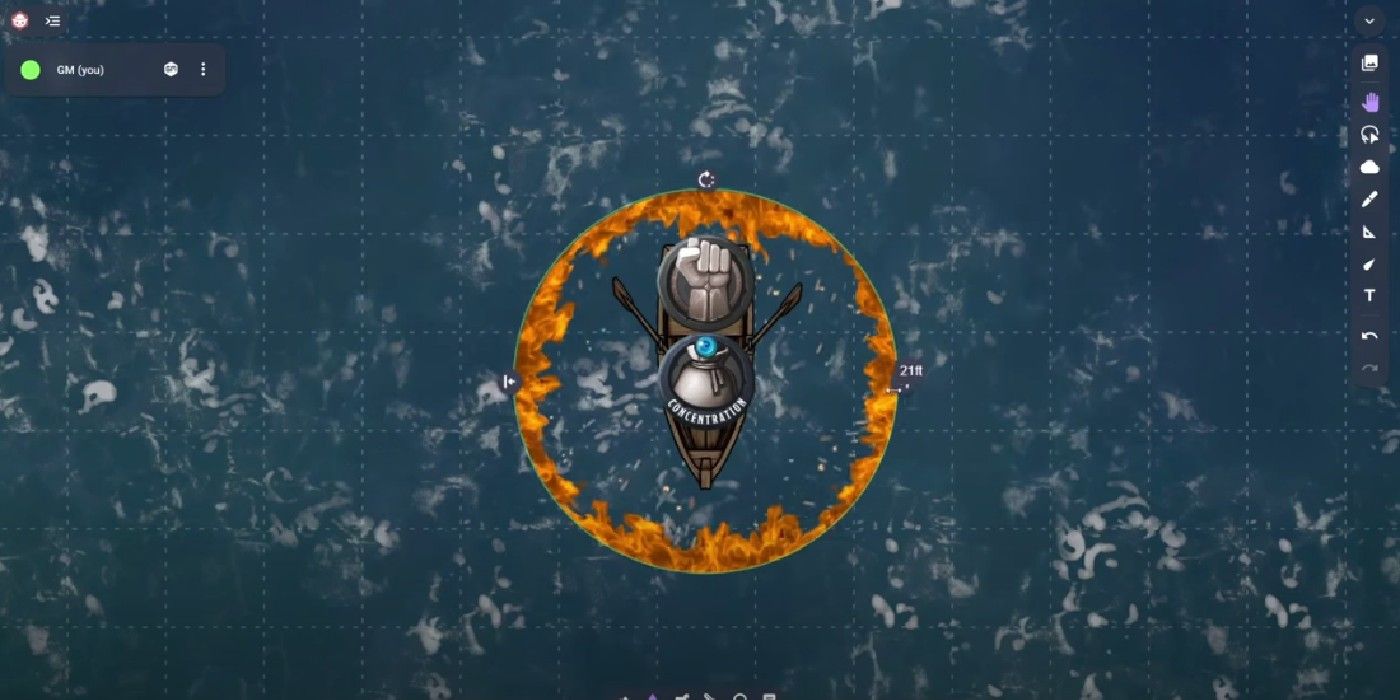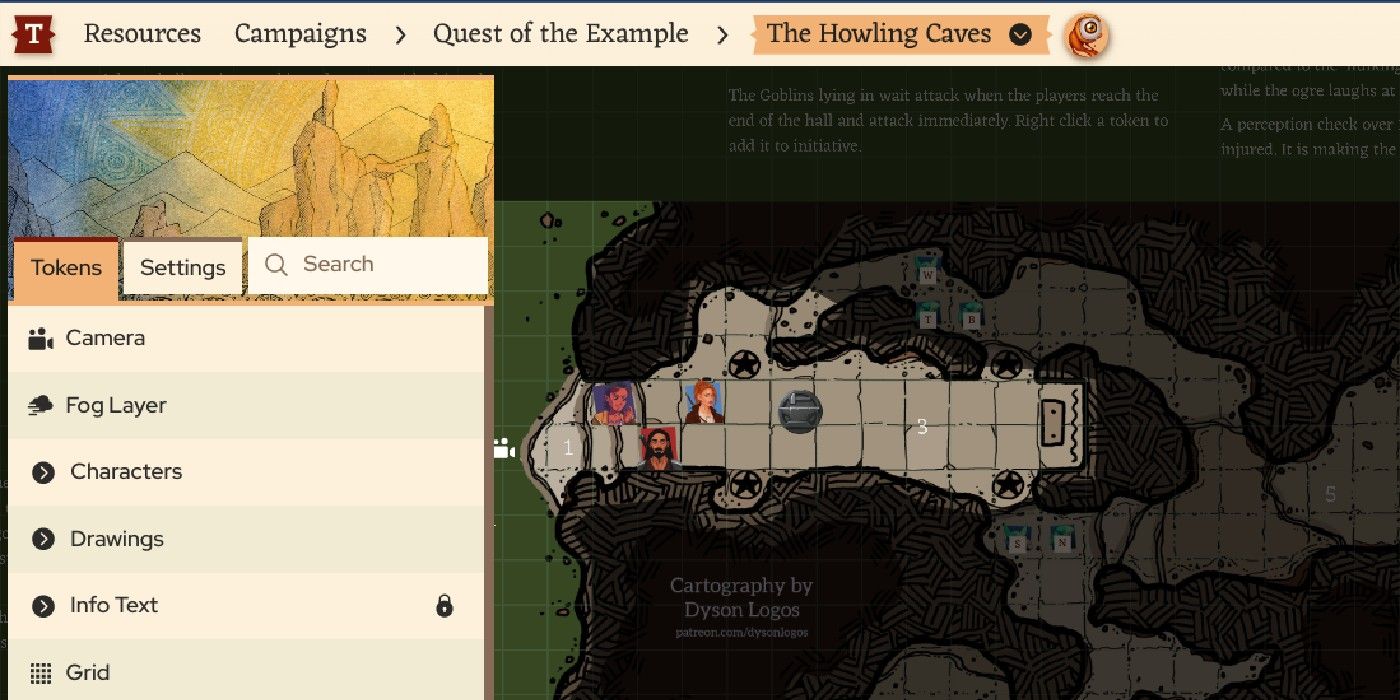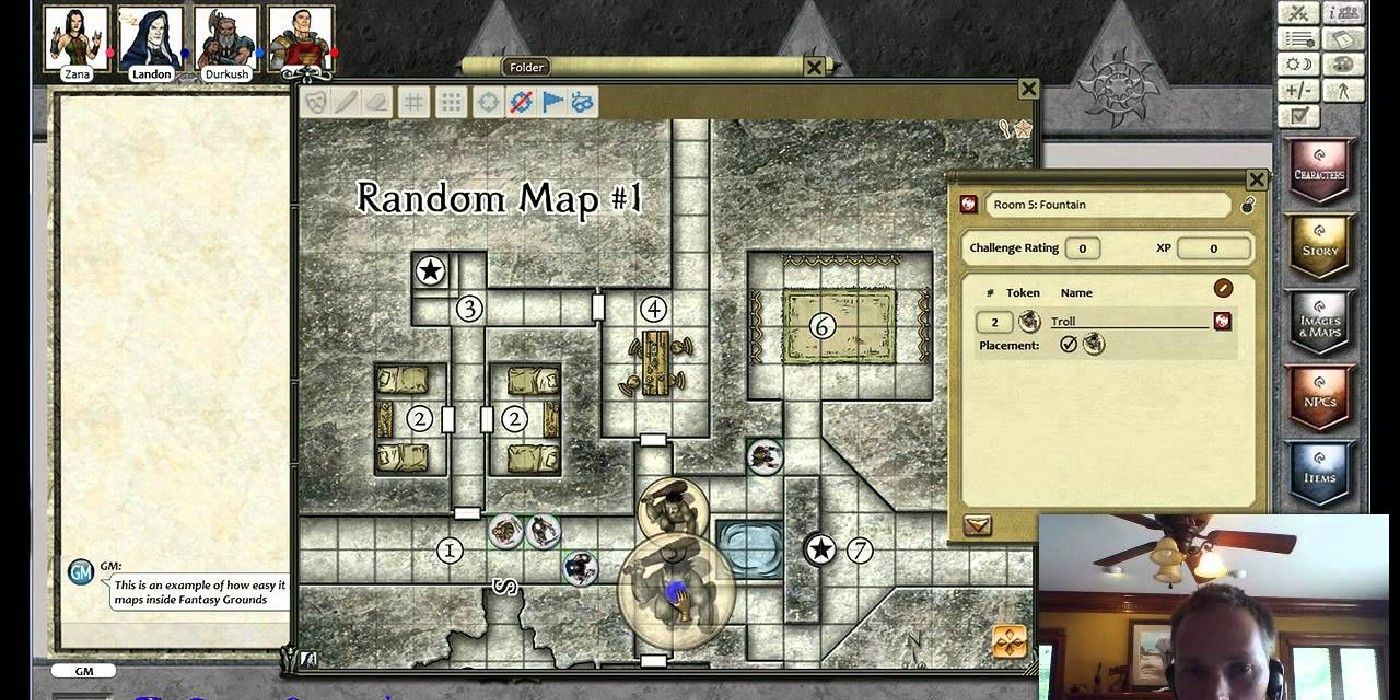Dungeons and Dragons is a great opportunity for teenagers and adults to be social and use their imaginations, but it can be difficult to get the full party together, especially when party members live far away from each other. Especially given how much virtual communication has grown since the pandemic started, many D&D groups are trying to keep their campaigns going online, allowing more players to join in than would be possible for an in-person meeting.
Because an official D&D system isn't currently available, parties need to look at the current offerings for Virtual Tabletops (VTTs) to see what best fits their campaign based on cost, capabilities, user experience, and more. Some parties are only looking for a way to video chat and automate dice rolls. Others want a detailed map with character tokens and animations to keep track of the adventure. Still, others want to have distinct interfaces between players and the DM to reveal information only when needed. Depending on the party and the campaign, any of the ten best Virtual Tabletops could be the perfect fit.
Role
For parties that are just getting started moving online, Role can be a great free VTT to start with. It has reliable voice and video chat functionality, which gives groups the option to continue their campaign regardless of distance. In effect, it's a more RPG-focused version of Zoom, Skype, or Discord.
In addition to the communication system, Role has built-in character sheets that players can customize to fit their stats, regardless of what TTRPG they are playing. Role also has a map function with movable tokens, but that is not its strong suit and can be a bit buggy. There's also no intuitive fog of war system, limiting how much the DM can plan without PCs seeing.
Shard
Shard is a strong, free VTT for those who specifically play D&D 5e. Unfortunately, it's still in its early stages, which means there are plenty of limitations or bugs that might come up. On the flip side of that, there is also a very active Discord server which means users can get solutions to their problems relatively quickly.
Users can purchase any number of third-party manuals and adventures which integrate into the system well, but Shard doesn't have access to official guides like D&D Beyond and Above VTT. For those who don't need to have official content integration, Shard is a great option for DMs and players alike.
Tabletop Simulator
Tabletop Simulator is one of the few 3D systems out there, with plenty of user-generated content for nearly any RPG. There are animated PC and monster tokens, and party members can watch each figure fight and die. Making it even better, it can also be translated into the VR world for more of an augmented-reality feel. However, its strengths are met by several weaknesses.
Tabletop Simulator is not specifically designed for D&D or even TTRPGs in general, which means that it has to be carefully crafted for whatever purpose is needed. In addition, it costs $20 per person, and each player has to buy it themselves if they want any control. Alternatively, the DM can purchase it and stream the screen, but that then eliminates many of the benefits of using the system to begin with.
Above VTT
Above VTT is one of the newest systems out there for making a more engaging RP session, but it has a lot of positives. Rather than being in a browser or app, it's available as a free Chrome extension that connects to a user's D&D Beyond account, which makes less work for those who want to get straight into the game.
However, the novelty of Above VTT comes with issues. There are bugs in the code, and the developers warn users not to plan too far in advance, as their work could be lost. It might not be a great system yet, but the integration with D&D Beyond is a feature no other VTT can compete with.
Roll20
Roll20 is one of the best-known systems for TTRPG players, as it has been around since 2012. Some of its many useful features include maps with DM-only views, customizable character sheets, and a unique whisper chat feature that allows the DM to speak with only one or a few party members at a time.
However, Roll20 has a deceptively high paywall. For full features, it costs $5.99 a month for a Plus subscription or $10.99 a month for Pro. This is a great option for those who want to have a lot of depth to their campaigns, as it's possible to get really detailed if players pay for a subscription and take the time to learn the system.
Talespire
Talespire is a great VTT for visuals, but it doesn't have the best mechanics when set against comparable systems. There are easy map-making tools, which work well within the 3D setting, but there are no integrated character sheets or rules. This is good in that Talespire is flexible to different RPGs, but it also means that players will need to keep track of their stats and rolls themselves.
For those who want the full spectacle of a VTT, Talespire is a solid option with realistic dice throws and animations. However, it's a fairly limited system considering each party member needs to purchase it for $24.99 in order to participate. That's not necessarily a problem for those who want high-quality graphics, but those who want more of an all-in-one VTT might want to look elsewhere.
Owlbear Rodeo
For those who just want to add a little bit of visual flair to their games, Owlbear Rodeo can be a great free option. It's an extremely simple system that allows a party to throw up a map, add some tokens, and continue playing. For the most part, this system is helpful to make sure all players are on the same page.
The other great perk to this VTT is that it is free for both DM and players. It has no other features, so players will have to use other systems for video and voice chat as well as keeping track of their character sheets, but that's not necessarily a bad thing, as it sticks close to the game's original intent.
Tableplop
Tableplop is a great system for those who just want an easier way to integrate the pen-and-paper components of Dungeons & Dragons. The character sheets are easy to work with for D&D 5e, and DMs can create multiple scenes in advance.
While it has strong features for Dungeon Masters, it doesn't have many of the fancy features present in other VTTs. For groups that want to work from their imagination, it gives everything a party could need for free. For those who want more complex visuals, animations, and video options, Tableplop likely won't be enough.
Fantasy Grounds
Fantasy Grounds technically has a free demo mode, but a subscription or license is required to really take advantage of the system. For $3.99 per month or a flat fee of $39.00, DMs and players can participate in games with built-in rule sets, character and NPC tokens, and maps. If the DM pays $9.99 per month or a flat rate of $149 for an Ultimate membership, then the players can stick with the free demo mode.
Basically, anything a roleplayer could want is there to bring a campaign to life. However, the chat features are extremely limited, so a successful session will probably require Discord or Zoom. It's probably the best system overall, but only if the DM is willing to put in the time and money to use all the features.
Foundry
Foundry is a paid option for a VTT that gives users a lot of bang for their buck. For a one-time payment of $50 (only paid by the DM), players gain access to pretty much anything they could want. A lot of these features come from the community, which means that pretty much anything that could be useful has probably been built.
However, mods have to be updated to the same level as the overall system, so it's possible to lose features when new updates come through. The video chat is also a pretty weak feature, meaning a Discord forum is a must. Overall, it's a fantastic system for big campaigns with areas to add information for the DM to hide or reveal, but it's ultimately beholden to maintaining a strong community that updates its mods regularly.

